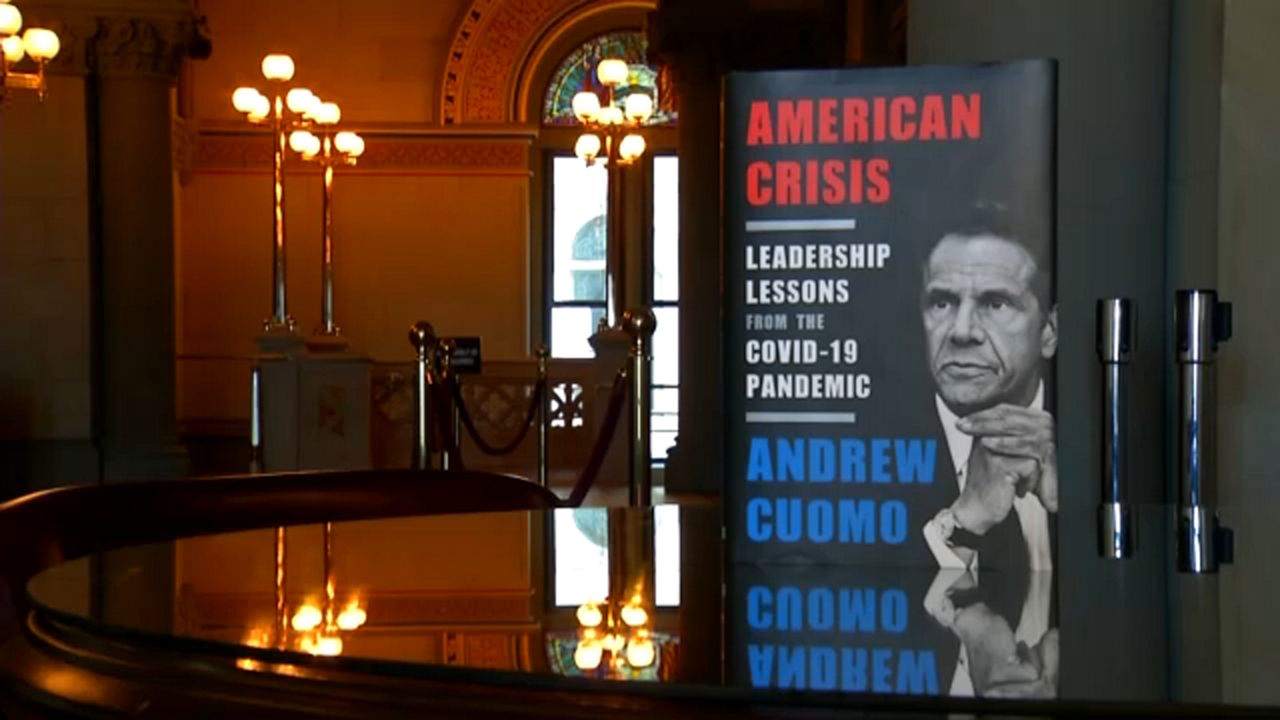A memorandum made public Tuesday written over the summer by an attorney representing former Gov. Andrew Cuomo pushed back on the idea the state sought to downplay nursing home residents' deaths in order to secure a lucrative book deal for the then-governor in 2020.
The 62-page memo by Cuomo attorney Elkan Abramowitz indicates and confirms several aspects of the inquiries facing the former governor. The federal criminal investigation into how the state reported nursing home deaths during the pandemic remained underway at least through the summer and multiple jurisdictions at the local, state and federal level have launched investigations into nursing home data reporting, as well as the circumstances surrounding the $5.1 million book deal.
And the memo, dated July 29, is meant to dissuade a grand jury and federal prosecutors from moving forward with the investigation.
The memo by Abramowitz was first published as part of an editorial by The Daily News on Tuesday.
The memo is largely a defense of the Cuomo administration's handling of nursing home data and the reporting of where residents died during the pandemic, asserting no federal laws were broken and potentially provides an understanding of how the investigation by the U.S. attorney's office in Brooklyn is being conducted.
The state's handling of fatality data has come under intense scrutiny over the last year, and a report by Attorney General Letitia James's office concluded the state undercounted the number of residents who died of COVID-19.
But Abramowitz in the memo asserts there was no criminal conduct by the governor or his top aides in how the data was presented to the public.
"Principles of federalism dictate that the federal government should not use criminal statutes as a vehicle to second-guess state policymaking," he wrote. "Longstanding DOJ practices and guidelines likewise establish that federal prosecutors should generally defer to state authorities where the state has a sufficient interest and ability to address the allegations at hand."
At the same time, implications the multi-million dollar deal for Cuomo's 2020 memoir about his handling of the pandemic played a role in downplaying the nursing home fatality data is "absurd," Abramowitz wrote.
"The absurdity of such a theory is apparent once one considers its broader implications," the memo stated. "Politicians across the country consistently publish books about their political endeavors—have they committed property fraud if, in the run up to publication they made false statements of self-serving puffery? Under that theory, if the book advance and sales could serve as the basis for a property fraud conviction, every politician in the country who has written a book could be subject to federal imprisonment."
Cuomo resigned Aug. 24 amid allegations of sexual harassment and inappropriate behavior leveled against him by 11 women as outlined in a report released by James's office earlier that month.
Cuomo has denied any wrongdoing; he continues to face a criminal investigation into an allegation he groped a woman at the Executive Mansion.
But the former governor is also facing multiple investigations, and Abramowitz's memorandum confirms subpoenas have been issued by the attorney general's office into a probe of the book deal as well as the allegations of preferential COVID testing in the early days of the pandemic. The Manhattan district attorney's office has also issued subpoenas as part of a nursing home probe and the Joint Commission on Public Ethics is investigating Cuomo's book deal as well as the testing controversy.
"New York State is well equipped and motivated to handle local political decisions and, when faced with misconduct, to prosecute such misconduct," Abramowitz said.
The Assembly Judiciary Committee is expected to release a highly anticipated report that grew out of an impeachment investigation earlier this year. The legislative inquiry has drawn in the sexual harassment allegations as well as a range of controversies, including the nursing home data reporting and the preferential COVID testing issue.



